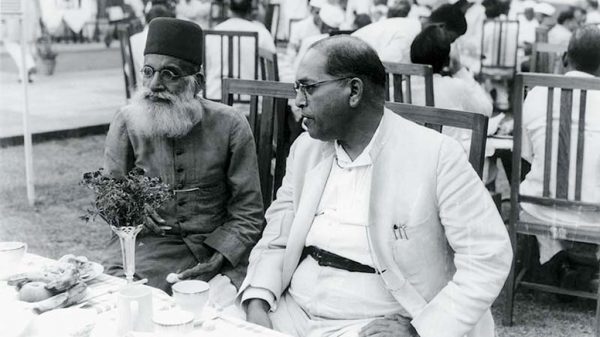Graduate Employability: Whether Soft Skills Matter?

Md Latiful Islam:
Graduates employability is now a national issue as every year huge number of graduates are passing out from higher educational institutions. Getting a job these days requires much more than just having a high grade point or compiling all kinds of certificates. This is because employers have been concerned about the ability of graduates to work in a modern organization. Someone may possess all those and still not be able to have a good job. The reason is simple; there are some soft skills that are needed to function effectively in an industry setting and employers look out for such skills in their prospective employees.
Let us look into the supply chain in the education and job opportunities in the country to see the factors that derives this high percentage of unemployment. The government has been facilitating the educational sector and established significant number of public universities along with graduation educational facilities in the colleges under National University. Besides, many private universities got permission to produce graduates. So, after passing higher secondary education, students can easily get facility to enrol at least for Honours level either in the public university / college or private university. Just look around your surroundings to see how many graduates are unemployed or underemployed; you will get the statistics. Scopes of jobs in different fields are limited and each job requires specific educational background. If we take data of number of graduates passed out from a subject/trade and available jobs for those particular graduates, then there is huge imbalance in the demand and supply.
One major reason behind is that most of the students do not have proper career planning. They just need to complete their graduation/post-graduation degree, after then start searching any suitable job. Top talented students of our country in general get admission in medical colleges, engineering universities or in some specialized subjects in the reputed public university. The recently published results of public services reveal that these bright students are preferring job in the general cadre of BCS instead of their respective cadre where they are certified. So, the job market for the general graduates became very competitive. Private sector is now the major entities to offer jobs for a portion of huge number of graduates.
I picked up the above discussion here to look into our current employment status. However, my objective of this article is to discuss how soft skills matters in employability. We may define graduate employability as a set of achievements – skills, understandings and personal attributes – that make graduates more likely to gain employment and be successful in their chosen occupations, which benefits themselves, the workforce, the community and the economy. After getting a job, financial benefits, promotions and rewards depends on an employee’s performance. Every year private offices get rid of many of their employees due to non-performance; i.e. employees’ lack of skills to achieve targeted objectives although they have good academic records. So, employability is not just about getting a job, it is about a broader set of skills and attributes that will enable a graduate to be successful throughout their working life. Graduate employability helps in remaining competitive, achieving individual goals, enhancing education, engaging in the student experience, thinking ahead and to become a good analyser and planner.
Skills are broadly categorised in two types; hard skills and soft skills. Hard skills are teachable abilities or skill sets that are easy to quantify. Typically, hard skills are learnt in the classroom, through books or other training materials, or on the job. For example – academic qualifications, technical qualifications, proficiency in a foreign language, computer programming, typing speed, machine operations etc. Soft skills are subjective skills that are harder to quantify. Also known as “people skills” or “interpersonal skills,” soft skills relate to the way you relate to and interact with other people; for example –communication skills, leadership, time management, interpersonal skills, adaptability, emotional intelligence, active listening, problem-solving skills, integrity and many more. Unless hard skills, it is difficult to show soft skills in the CV and employers are more concerned about assessing these skills before selecting the prospective employee. So, hard skills may help in applying for job where soft skills are required to get the job through passing the job interview. Soft skills also matter within family, friends, socially and business to take a lead.
Technologies have been evolving very fast and existing concepts of products and services are also changing to meet customers’ growing requirements. Individuals must have to develop with the new skills to sustain in the rapidly changing work environment. As we discussed, soft skills cover all the aspects of generic skills which include the cognitive elements those help individual for continual improvement. Soft skills give many benefits and their importance cannot be ignored in this era of cut-throat competition.
The World Economic Forum in its ‘The Future of Jobs Report 2020’ published in October 2020 mentioned that automation, in tandem with the COVID-19 recession, is creating a ‘double-disruption’ scenario for workers. By 2025, the time spent on current tasks at work by humans and machines will be equal. A significant share of companies also expects to make changes to locations, their value chains, and the size of their workforce due to factors beyond technology in the next five years. Skills gaps continue to be high as in demand skills across jobs change in the next five years. The top skills and skill groups which employers see as rising in prominence in the lead up to 2025 include groups such as critical thinking and analysis as well as problem-solving, and skills in self-management such as active learning, resilience, stress tolerance and flexibility. On average, companies estimate that around 40% of workers will require re-skilling.
In different programs, senior levels of many corporate houses claim that they don’t get candidates having required skills to fill up their HR vacancies. I had the same experience in recruitment for my department while I was serving with a bank. This is because quality in accordance of existing job market is not focused while producing so many graduates. Most of the banks and top ranked corporate bodies target public universities and they find very few number of private universities in their list while recruitment. So, a greater portion of graduates are ignored for suitable jobs considering lack of soft skills.
Now question is that how soft skills may be developed? We discussed the soft skills are not teachable skills; rather these are transferable skills. An individual may develop his/her skills through following a mentor or style of a successful person being an idol. Starting of learning begins from childhood at the family level. Parents should guide their kids what to do, not to do and teach them norms to adopt with the practical fields. Proper career planning and action plan to achieve the goal may help to develop the skills. Educational institutes may conduct skills development programs for their students and include future job oriented education in their curriculum. Employers sometimes engage HR consulting firms to assess soft skills gaps of their employees that is conducted through behavioural questions, reading body language and asking situational questions. Based on the consultants’ report and training need assessment, employers arrange learning & development programs, frequency based coaching & feedback sessions, team building activities, leadership program and re-skilling trainings. Fresh graduates may improve their soft skills from skills development training institutes to increase their chances of getting employed.
Employers need right people, not the best people. So, prospective job candidates should give focus to developing soft skills with the same importance they give to having an outstanding result in their educational exams. Career vision must be in accordance with the individuals’ interest, job opportunities, payments, social status, and future demand of the job and proper efforts to be given to make difference with others towards achieving the career goal. Only government cannot change the things; parents, the graduates and educational institutes must take it seriously in developing soft skills of the educated cohort. All we are currently worried about the huge number of unemployed graduates. On the other hand, if we can develop soft skills of these graduates, they will be the valuable human resources for taking the socio-economic status of the country to a new height.
(The writer is the Chairman, FinPro Consultants Limited)
Source: Sun Editorial





























Leave a Reply